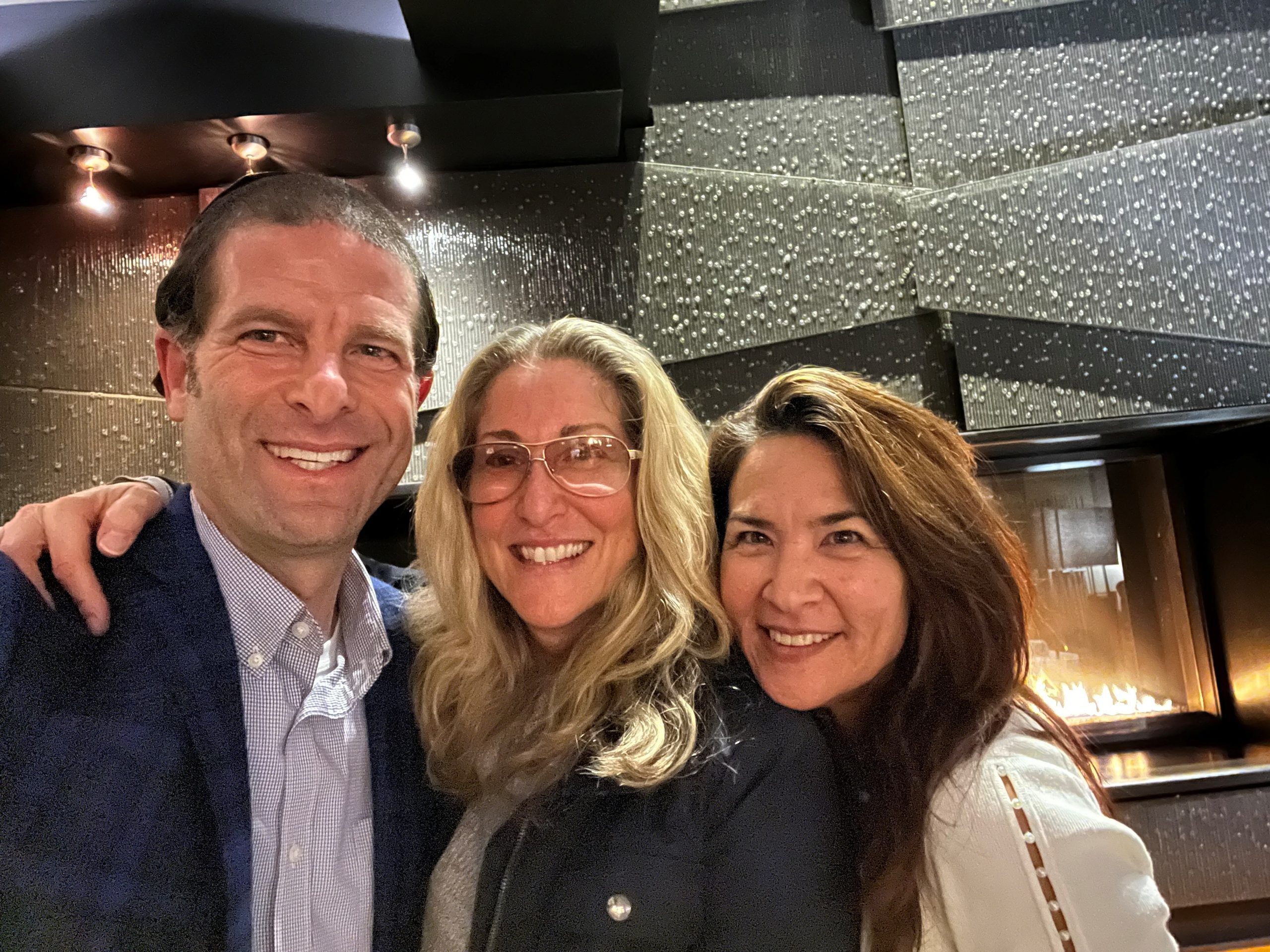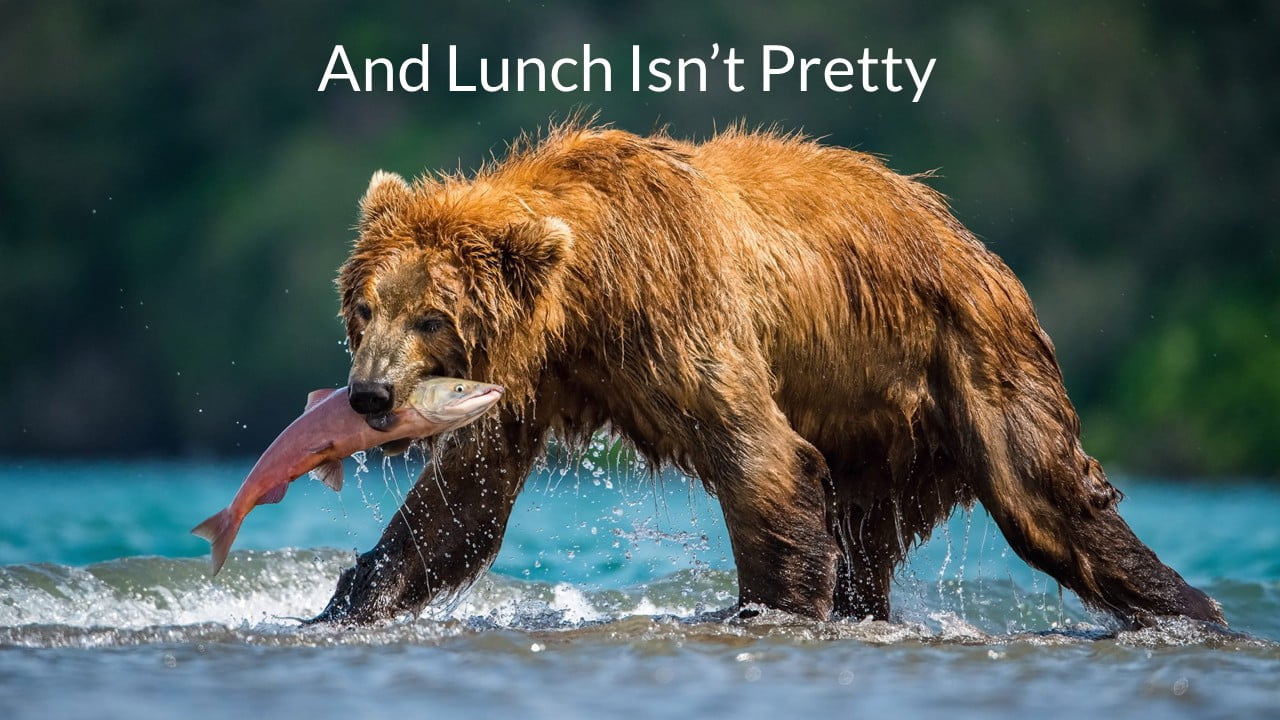
With Tiffani Bova and Jennifer DeMello-Johnson
The chapter she wrote about unconventional strategies includes a case study on Lemonade and starts with a quote from Sam Walton of Walmart fame:
“Swim upstream. Go the other way. Ignore the conventional wisdom.”
Lemonade is a company that ignores conventional wisdom. They do it with their insurance products, and they do it with their business model. Lemonade just entered the auto insurance market having launched in Illinois this week. This is a classic example of swimming upstream and disobeying the rules. What rules are they disregarding — the simple rules of Insurance economics. Take in more money than you spend on claims, marketing, and general expenses. We know this as the combined ratio, and a value under 100 means you are making money, and a value over 100 means you are losing money.
I grew up in Western Canada. I used to spend a lot of time on the Salmon River part of Shuswap Lake in the BC interior. During the salmon spawning season, it was a sight to behold. A sea of red in the river. The problem for the salmon was that in such great numbers in shallow waters, they were an easy catch for the bears.

Auto insurance is a bloodbath. Metromile and Root are two of the most innovative new players in the auto insurance market. They provide a great product that is supposedly cheap, convenient, and efficient. However, these companies are no match for the larger, more established names like Geico and Progressive. These bears are much bigger and stronger than Metromile and Root, with better economic returns to prove it. Allstate has more driving behavior data than Metromile. Geico, Progressive, and Allstate can eat up smaller competitors like Metromile for lunch, with barely any indigestion.
The auto industry is extremely competitive. That’s why you must turn up the heat. New entrants are looking to change the game, but incumbents have tremendous brand equity and loyalty which will make it nearly impossible for these new entrants to dislodge. Auto insurance and renters’ insurance are not the same. Auto insurance is a core product for these carriers. They didn’t treat renters’ insurance as their core product, and they treated it as an accommodation for their current customers, who had children going off to college. Young buyers loved this new product innovation, which resonated with them, and it was the backbone for Lemonade’s success within the industry. This is not the case with the auto product that has been continuously evolving.
Lemonade announced they are buying Metromile in an all-stock deal worth about $500M. This is a great move for Lemonade, as it allows them to expand their reach from writing insurance policies in one state to being licensed to do so with a telematics product in 49 states. This is a leapfrog move that will allow them to rapidly grow. Additionally, they gain an enterprise sales strategy that has been marketing Metromile’s claims handling technology on a SaaS basis.
Metromile’s market cap is $390M. It’s down more than 50% from its IPO price of $956M. Lemonade is paying a premium, which might not be too big of a problem except Metromile and Lemonade are still losing millions of dollars per quarter.
In the first half of 2021, Metromile and Lemonade’s combined loss was $250M. So in the end, we have one money-losing Insurtech buy another money-losing Insurtech, only to have the combined Insurtech be a bigger money pit.

The real market opportunity might be with Root. Hippo currently has a program in place to combine their home insurance product with Metromile’s car insurance. I suspect Hippo is looking for a new car insurance partner. Root is larger and more established, and the combination with Hippo might be even better for both companies.
The future is always uncertain, but one thing is certain: there will be further consolidation among the Insurtechs. Will Root buy Hippo or vice-versa? Only time will tell who will win this battle.
In the meantime, what can a traditional carrier (or Insurtech) do? First, stay up to date on the latest trends and best practices. Make sure you’re not missing out on any opportunities. Second, don’t forget your original goal. To swim upstream, you must have a good reason. You must make sure you continue to do the things that originally set you apart from the competition. Make sure you when you innovate, you:
- Address a known issue
- The challenge needs to make business sense
- Be large enough to warrant addressing (Total Addressable Market)
- Be differentiating (Unique Value Proposition)
- Be something the market wants (Product Market Fit)
- Be profitable!
By focusing on these steps, you will ensure your continued success. Feel free to reach out to me if you want to discuss this or other issues.
Kaenan
Insurtech Advisors helps regional carriers and agencies to work with the best Insurtechs that will enable you to succeed and continue to meet the needs of your members, employees, and independent agents. We know your business and the landscape of Insurtech. We save you countless hours of wasted time and false starts. Furthermore, we work closely with your team to identify opportunities and goals, then introduce you personally and to the best Insurtechs pilot.

Kaenan is a professional in the areas of block chain, telematics, wearables, analytics, artificial intelligence (AI) and Insurtech. He has played a key role in innovating many start-ups and established carriers. His advice has been widely appreciated in the financial community, which resulted in multiple quotes and publications in various media.
Most recently he was Practice Lead for Innovation, Fintech, and Strategic Insights at EY. Throughout his career he has held leading roles within Marketing Strategy and Decision Management with top Insurance, Banking and Finance companies, including USAA, Citibank and Sallie Mae.